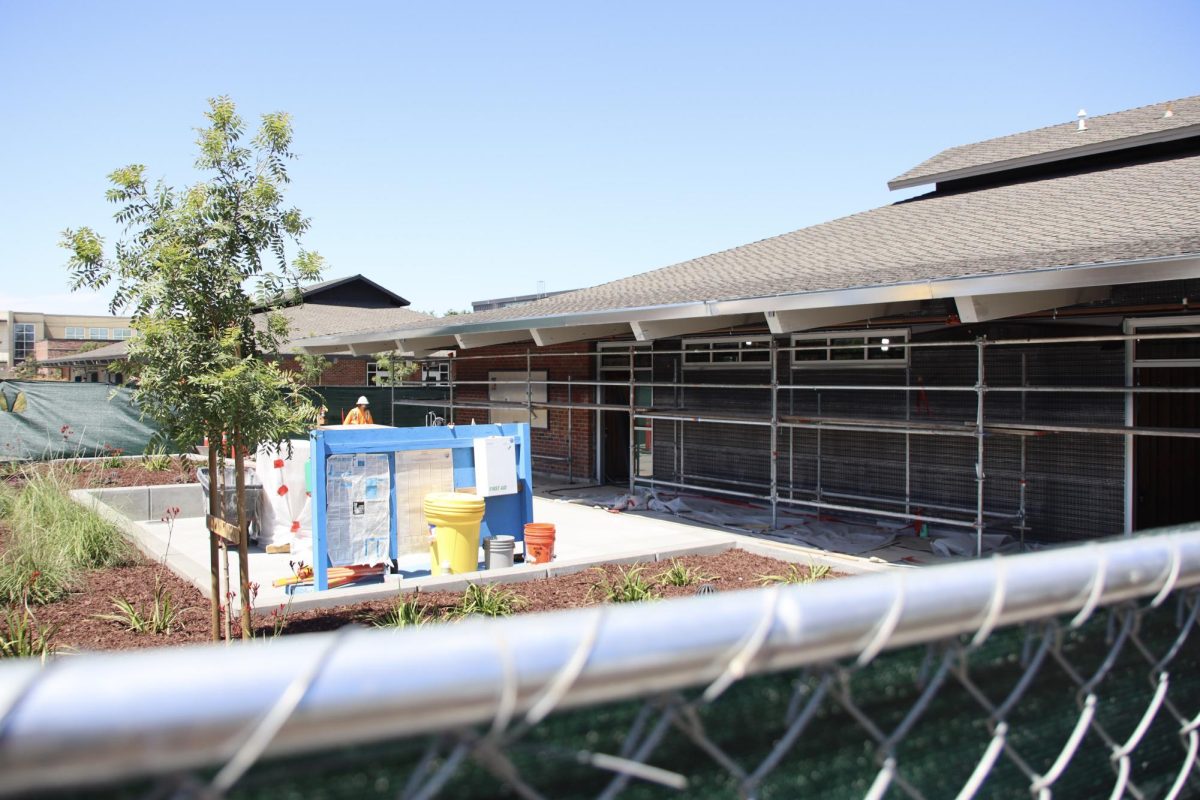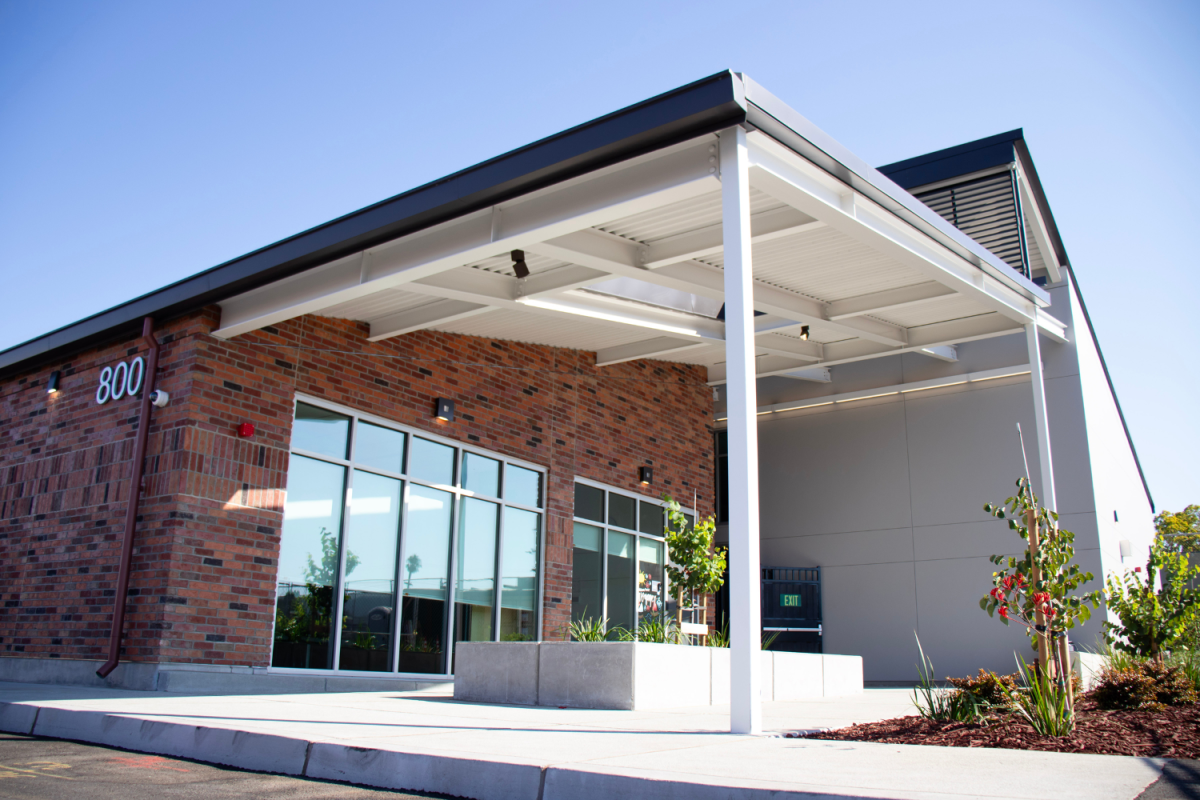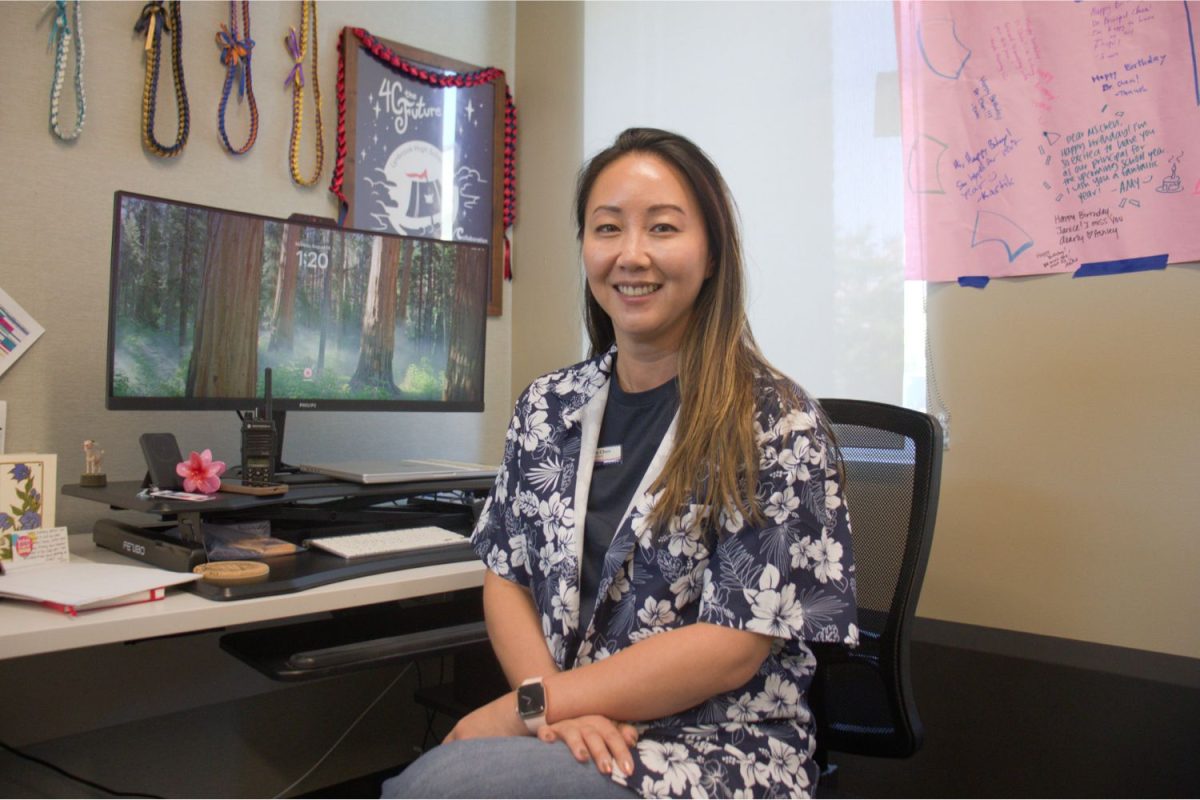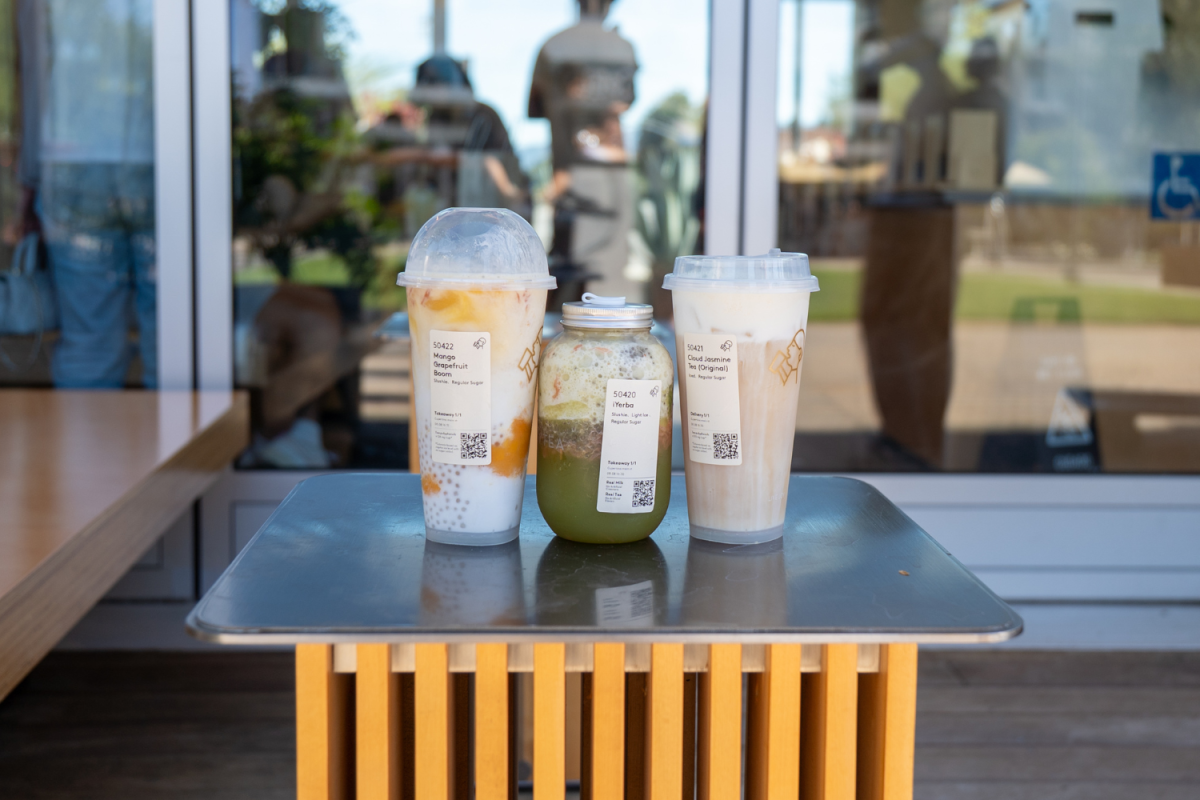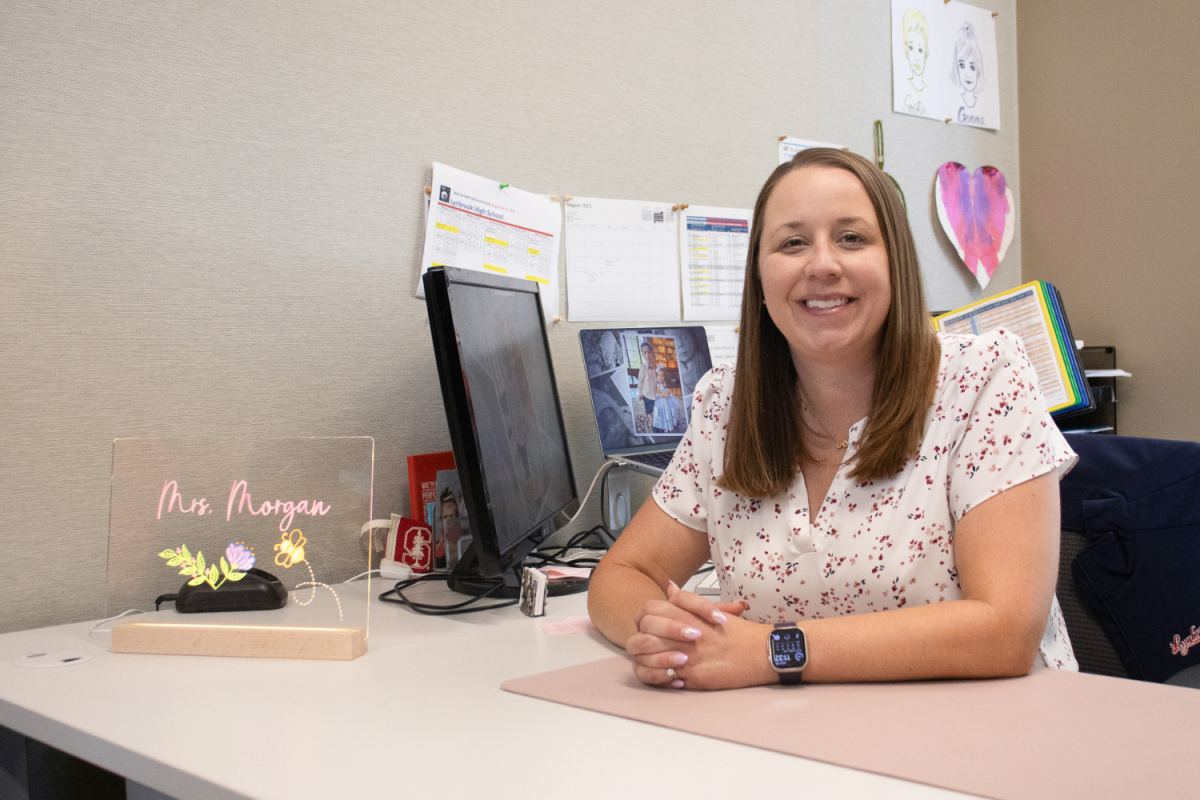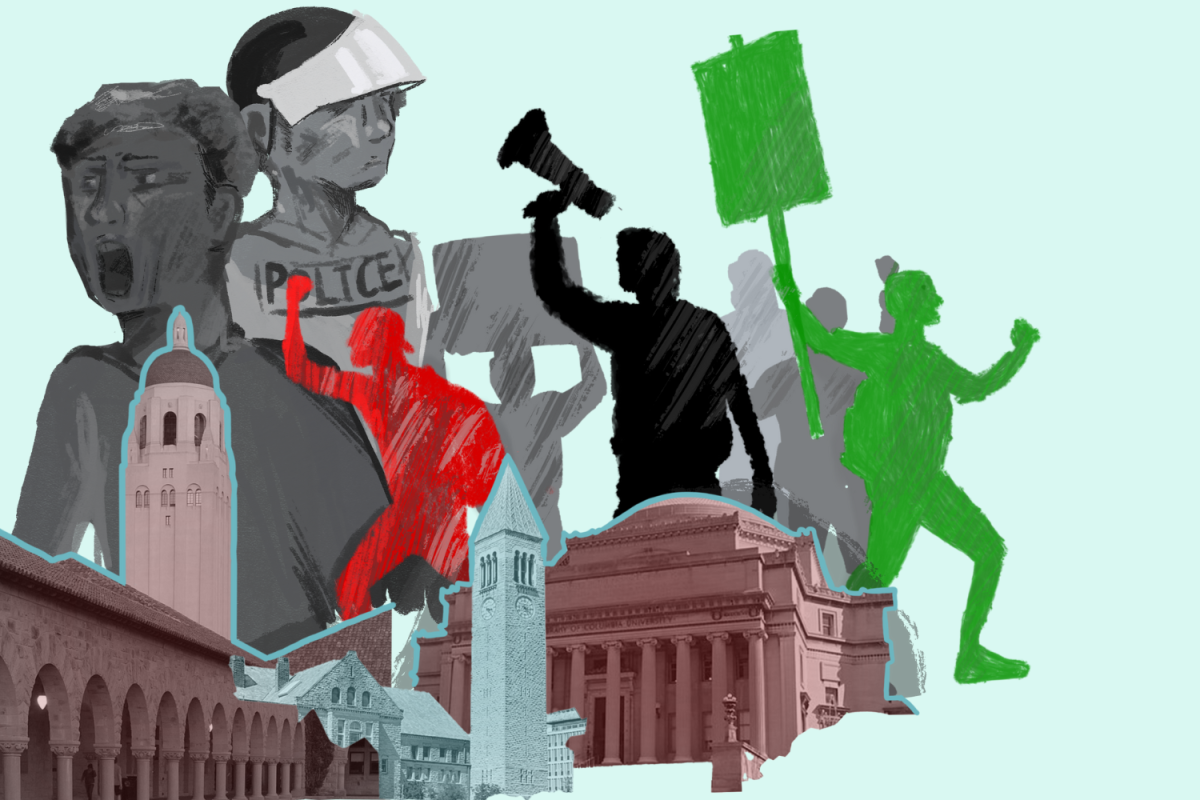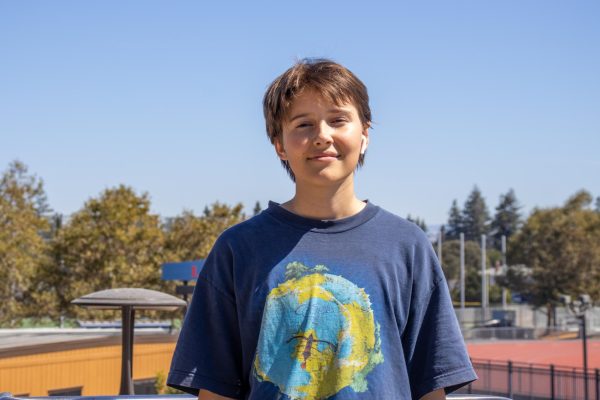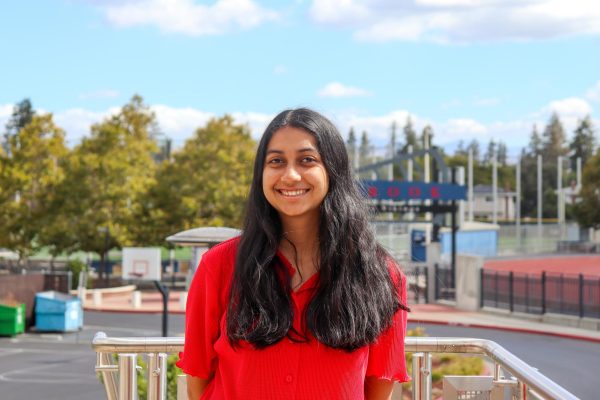“We were screaming over the barricade at the police that were supposedly sent to protect the students,” Lynbrook alumna and freshman at UCLA Jasmine Lu said.
Under the darkness of night, violence broke out on the UCLA campus as fireworks thrown into a protest encampment illuminated the surrounding chaos.
“We were screaming at them, ‘Protect us! Do your job!’ but they laughed and took pictures,” Lu said. “They were being useless on Tuesday night, but on Wednesday, they were pepper spraying and shooting rubber bullets at people. My friend got a rubber bullet shot at her head and had it not been for the plastic helmet, she probably would have sustained lifelong injuries.”
In recent weeks, student arrests, suspensions and expulsions have risen across college campuses in light of demonstrations in support of Palestine amid the ensuing war in Gaza. While many universities have complied with students’ requests, peaceful protestors at other campuses have been met with hostility from police, academic punishment and probation. Despite the complexity of this conflict, students should be allowed to exercise their First Amendment right to freedom of speech and voice their opinions without fearing for their safety and academic future.
Through these demonstrations, many students have rightfully called on school administrators to sever ties with the Israeli government — as their tuition funds the university’s donations. At UCLA, the students are proceeding with a 5-pronged approach. The first prong demands that the administration disclose investments and increase transparency about the allocation of tuition and donations. The second point is to divest aid, or rescind investments, in forms such as funding for arms and other military equipment. The third demand is to abolish policing on University of California campuses and reconstruct different task forces to take on the roles of the UC Police Department, as many students no longer feel safe around campus law enforcement. In the fourth point, students are calling on the university to end their silence on the issue and formulate an actual stance on the matter. The final demand is to boycott the various institutions with academic ties to Israel, such as the UCLA Nazarian Center.
Encampments have taken center stage at campuses such as Columbia University and Vanderbilt University, where students have set up tents in solidarity with the arrested protestors. Despite the justification for law enforcement to be on campuses for student safety, a number of demonstrations have led to violence between students and law enforcement officials, creating a hazardous environment and failing to protect campus safety.
“You should be able to protest anywhere,” Los Angeles-based activist Jared Rice said. “That’s free speech, and it’s one of the founding pillars of our country. The line is drawn beyond peaceful protests, but the problem is that it allows the institutions being protested against to define what ‘not peaceful’ means. Many times, that’s whatever is against the institution’s wants. Even if we’re being peaceful, they’re in the business of protecting their property, not our rights as people to protest.”
For example, in a UCLA statement on April 30, Mary Osako, vice chancellor for UCLA Strategic Communications, said that the university would penalize any students and faculty that remained in the encampment on campus. At the same time, she emphasized UCLA’s intent to make the campus a place where people will “treat one another with respect and recognize our shared humanity — not a place where we devolve into violence and bullying.” Despite the statement, UCLA campus police arrested more than 200 people while clearing the encampment on May 1. Local authorities declared the student encampment to be an “unlawful assembly” after a violent attack by counter-protestors on the encampment the night before. Police utilized severe methods to clear out the student encampment, reportedly using flash-bang grenades, following a lack of intervention as counter-protestors sprayed bear mace, launched fireworks and otherwise physically attacked the encampment. Police stood by for hours before intervening the night prior. The university’s claims to protect students have not been reflected in their severe disciplinary actions, which have led to greater violence.
“The university claims that they are trying to protect safety and then we’re not seeing that same thing being translated into real life,” Lynbrook alumna and UCLA freshman Katie Chung said. “It’s mind-boggling. How can they say something that’s so different from what their actions are doing? It feels a bit like betrayal because, obviously, it doesn’t matter to them.”
This consistent contradiction between UCLA’s stated ideals and actions shows a lack of true care for protecting student safety and the sanctity of their education — something that a university should prioritize. Moreover, several universities such as Columbia and UCLA have transferred all classes to hybrid learning for the time being. Many campuses have even gone as far as canceling graduation ceremonies. At the University of Southern California, valedictorian Asna Tabassum’s graduation speech has recently been canceled for pro-Palestinian sentiments on her personal social media accounts. The university rationalized this decision with fears for Tabassum’s safety, despite a lack of evidence of any explicit threats to her or the university. She wrote in a statement that USC also expressed that while they did have the resources to deal with any safety concerns, they did not intend on using them, because “increased security protections is not what the University wants to ‘present as an image.’” To cancel a class’s graduation ceremony due to a student’s personal beliefs shows that they value their ideal public perception over the intellectual exploration of their students, which is the foundational purpose of higher education.
“It’s in the university’s best financial interests to not let someone who is going to tell the truth about the situation speak,” Rice said. “Because they weren’t going to risk letting her rile everyone up and paint the school in such a way. She is one of the top performers in this hub of education in one of the highest-ranking schools in the United States, and they weren’t going to let that tarnish their reputation by allowing her to fight against something that the school actively invests in.”
This tension between protestors’ right to voice their concern and the blocking of access to educational facilities is what has made this issue so divisive.
“You can still have protests, but I question and reject the outright blocking of students’ and faculty’s access to an education based upon just your opinion. There is legal precedent for this in the landmark Supreme Court case of Tinker v. DesMoines in which the Court outlines the boundaries of protest actions,” Lynbrook history teacher Mike Williams said. “I don’t question whether or not they should have the right to protest, but if people can’t do their job or go to class because of a group’s opinions, that’s an issue.”
Media attention has been drawn to the ongoing violence between police, protestors and counter-protesters, with news channels and papers consistently covering the issue. Many commentators do not paint a complete picture of the protests, creating anti-protest biases among viewers. Coverage of the conflict has featured a lack of student perspectives, with many broadcasts not giving protestors the opportunity to express the reasons behind their involvement and experiences when protesting. Instead, they allow space for commentators to insinuate that motivation stems purely from a baseless call for attention as they remain ignorant of the demonstrations’ cause. In fact, students have constructed detailed ideas for the purposes of the demonstration and remain generally knowledgeable about the causes they are fighting for.
“We held speaker events and these are not events that you would attend and organize if you didn’t care about the root of the issue,” Lu said. “It’s hard for me to speak for the whole student populace that was there, but I do get the resounding impression most of the people who are involved are informed, or making an active effort to inform themselves.”
These small tonal and semantic biases conveyed by much of the media contribute to a general acceptance of extreme force being used against the students to keep them in line. The silencing of America’s student voices must be stopped and must guarantee academic freedom, even if students harbor controversial opinions. Universities should do a better job of allowing students to voice their opinions and exercise their First Amendment right to freedom of speech.
“Throughout history it has been the older generation bashing the students and saying, ‘You’re crazy, you’re a radical, you don’t understand the issue like we do,’” Chung said. “Then, decades later, we look back at history and more often than not, we realize the students were right. It’s really important to listen to what the students are saying now because they’re going to shape and change the future.”

